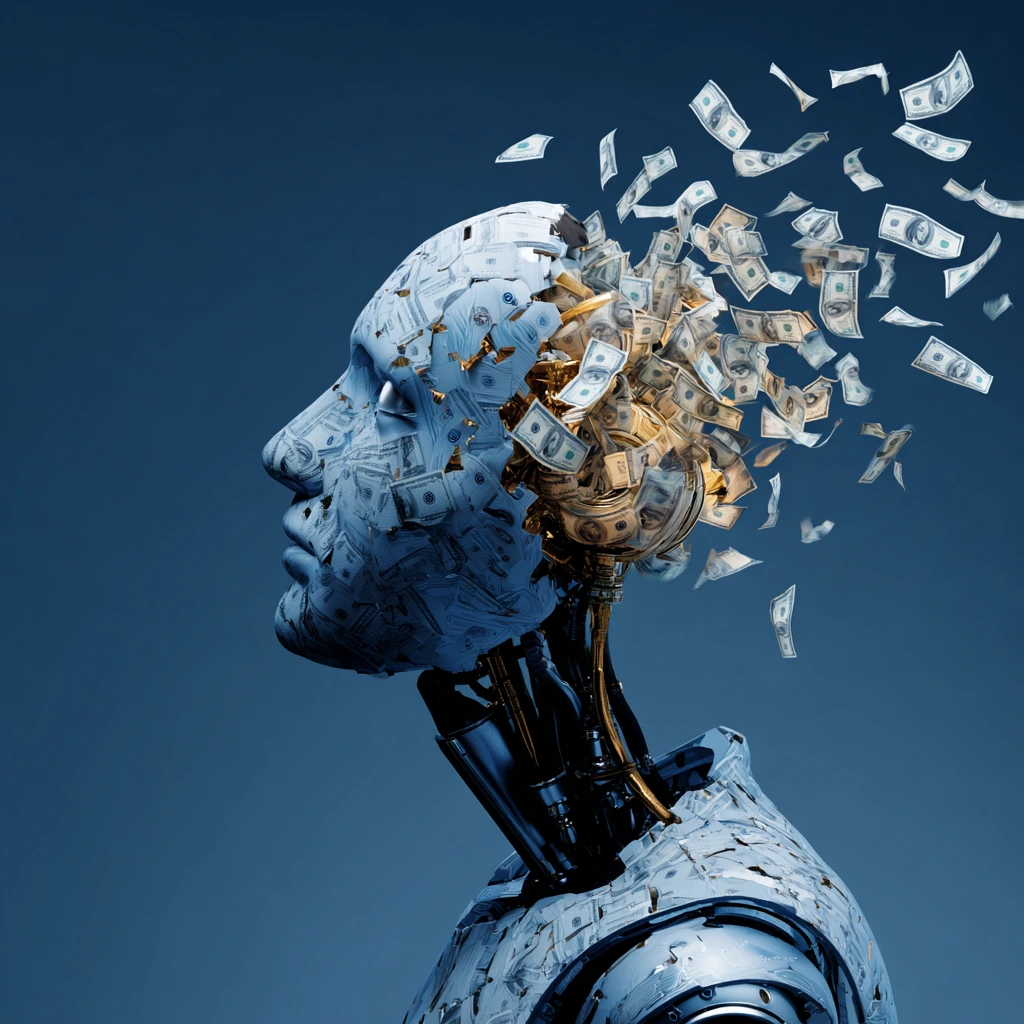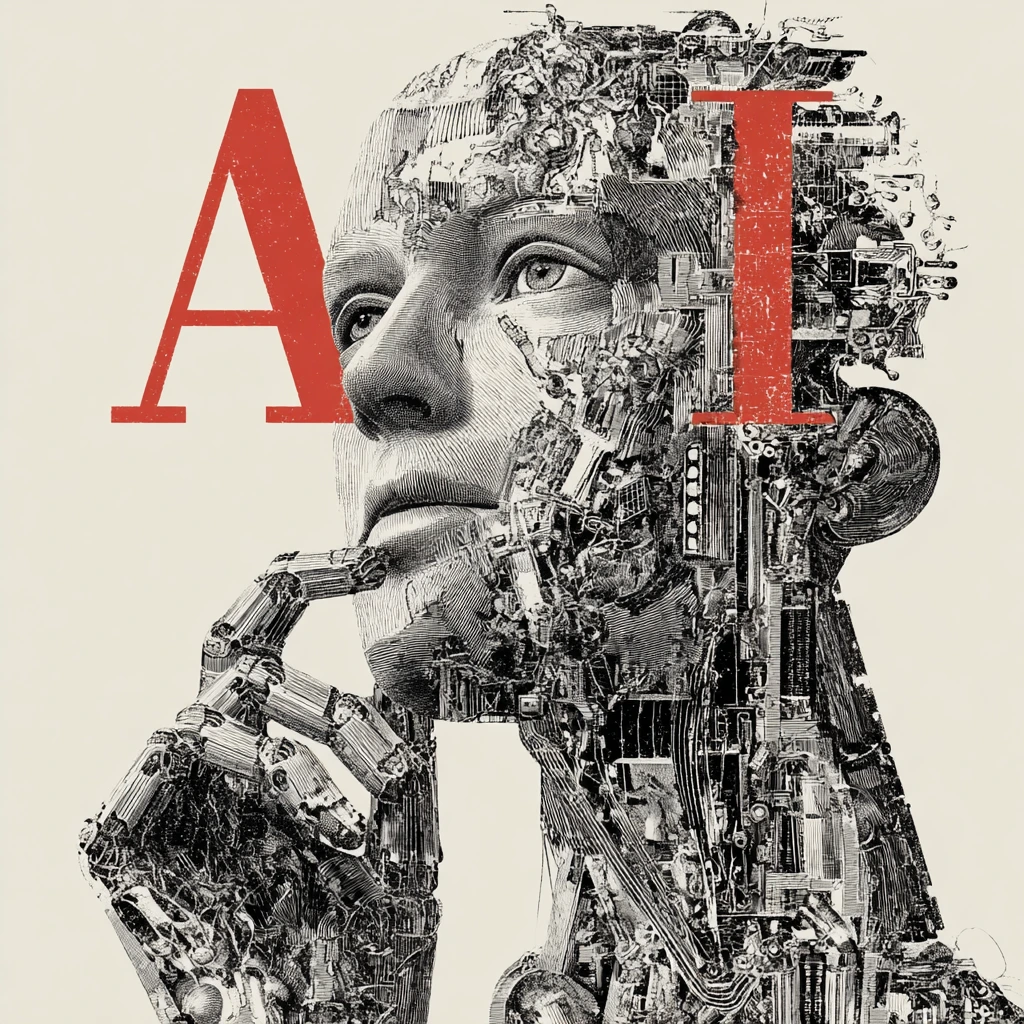AI’s Economic Impact
The dawn of artificial intelligence (AI) is not merely a technological advancement; it is a profound economic tsunami, fundamentally reshaping industries, generating unprecedented opportunities, and irrevocably altering the global economic landscape. While the full scale of its long-term impact is still being understood, a compelling consensus has emerged: AI is poised to drive monumental economic growth and productivity gains, akin to the transformative effects witnessed during past industrial revolutions. Influential reports from leading financial institutions and consulting firms project that AI could contribute trillions of dollars to global GDP over the next decade. This goes far beyond mere automation; it signals a new era characterized by heightened efficiency, accelerated innovation, and novel forms of value creation, a process that is already well underway.

Boosting Productivity and Efficiency: The Engine of Growth
One of AI’s most immediate, tangible, and far-reaching impacts is its remarkable capacity to supercharge productivity and efficiency. By intelligently automating routine, repetitive, and often labor-intensive tasks, AI frees human workers from mundane responsibilities, allowing them to redirect their focus toward more intricate, creative, and strategically valuable endeavors. This powerful augmentation of human labor is already yielding significant gains across a diverse spectrum of sectors. For instance, in the manufacturing industry, AI-powered predictive maintenance systems can accurately forecast equipment failures before they occur, dramatically reducing costly downtime, minimizing operational expenditures, and extending the lifespan of critical machinery. In the complex world of finance, sophisticated AI algorithms are capable of analyzing colossal volumes of transactional data in real-time, identifying fraudulent activities with unparalleled speed and accuracy, and optimizing trading strategies to maximize returns, collectively saving institutions millions, if not billions, of dollars annually. Beyond these examples, AI’s ability to process and interpret vast datasets far more rapidly and comprehensively than humans allows for optimized resource allocation, streamlined supply chains, and superior decision-making, all contributing to a substantial uplift in overall economic efficiency.

Creating New Jobs and Reshaping the Workforce Landscape
While initial anxieties about widespread job displacement have been prevalent, a more nuanced and encouraging picture is emerging: AI is not merely replacing jobs; it is also a powerful engine for creating entirely new roles and industries. As AI technologies become increasingly integrated into the fabric of our economy, a fresh array of specialized occupations is coming to the fore, demanding expertise in critical fields such as AI ethics, prompt engineering, advanced data science, and sophisticated machine learning development. These roles are often high-skilled, high-value positions that leverage human ingenuity in collaboration with AI systems. Furthermore, AI’s intrinsic capacity to foster groundbreaking innovation is actively catalyzing the birth of entirely new industries, products, and services that were previously unimaginable. Consider the rapid growth of autonomous vehicle technology, personalized medicine, or highly responsive virtual assistants – these are all nascent industries heavily reliant on AI, generating novel employment opportunities. This transformative shift underscores the paramount importance of robust upskilling and reskilling initiatives for the existing workforce, ensuring that individuals possess the necessary adaptability and technical proficiencies to thrive in this evolving economic landscape. Education systems and vocational training programs must rapidly adapt to equip future generations with the collaborative skills needed to work alongside intelligent machines, fostering a dynamic human-AI partnership in the workplace.

Reshaping Industries: A Sectoral Revolution
The economic impact of AI is not a homogenous wave; instead, it manifests differently, yet profoundly, across a wide array of key industries, fundamentally redefining their operations and competitive dynamics.
- Healthcare: AI is revolutionizing healthcare, moving beyond administrative efficiencies to core medical practices. AI-powered diagnostic tools are enabling earlier and more accurate detection of diseases, from identifying subtle patterns in medical images that human eyes might miss to predicting patient deterioration. In pharmaceutical research, AI-assisted drug discovery platforms are dramatically accelerating the identification of promising drug candidates, analyzing vast biomedical datasets to predict interactions and efficacy, thereby reducing the time and cost associated with bringing new treatments to market.
- Retail and E-commerce: In the highly competitive retail sector, AI is providing an unparalleled advantage. Predictive analytics, driven by AI, can forecast consumer purchasing habits with remarkable accuracy, allowing retailers to optimize inventory management, minimize waste, and prevent stockouts. AI facilitates dynamic pricing strategies that respond to real-time demand fluctuations, and crucially, enables hyper-personalized shopping experiences through intelligent recommendation engines, leading to increased customer satisfaction and loyalty.
- Agriculture: Even in traditionally labor-intensive sectors like agriculture, AI is ushering in an era of precision farming. AI-driven systems utilize sensor data, satellite imagery, and weather patterns to provide farmers with highly accurate, data-driven insights on everything from optimal crop watering schedules and nutrient application to precise pest and disease detection, leading to more efficient resource utilization, higher yields, and environmentally sustainable food production practices.
- Transportation and Logistics: AI is at the core of the ongoing transformation in transportation, from optimizing complex logistical networks and route planning to the development of self-driving vehicles and intelligent traffic management systems. These innovations promise to reduce fuel consumption, alleviate congestion, and enhance safety across the entire supply chain.
- Financial Services: Beyond fraud detection, AI is enabling advanced algorithmic trading, risk assessment, and personalized financial advice, leading to more robust financial systems and tailored services for consumers and businesses alike.
These are just a few compelling examples of how AI is not merely a supplementary technology but is becoming an indispensable engine of innovation and growth, transforming established business models and forging entirely new value propositions across the global economy.

Addressing the Challenge of Economic Inequality
Despite its immense potential to generate widespread prosperity, the rise of AI also presents significant socio-economic challenges, particularly concerning the exacerbation of economic inequality. Currently, the lion’s share of AI adoption benefits tends to be concentrated among larger corporations in advanced economies, which possess the substantial capital, advanced infrastructure, and skilled talent pools necessary to invest in and effectively implement AI technologies. This can unfortunately widen the existing chasm between technologically adept leading companies and smaller businesses struggling to keep pace, as well as between developed nations and those still developing.
Furthermore, while AI can undoubtedly lead to increased wages and opportunities for workers equipped with AI-related skills (such as AI ethicists, data scientists, and machine learning engineers), individuals who lack access to appropriate training or the ability to adapt to these new technological demands may face stagnant wages, increased job insecurity, or even displacement. Studies indicate that AI’s impact on job displacement is often concentrated in roles involving routine, predictable tasks, potentially disproportionately affecting lower-skilled workers.
To ensure that the immense benefits of AI are shared broadly and inclusively, proactive policy interventions are critically needed. Governments and international organizations must prioritize initiatives that promote equitable AI development, provide widespread access to quality education and vocational training programs focused on AI literacy and new skills, and establish robust social safety nets to support workers during periods of transition. This includes fostering AI innovation in smaller and medium-sized enterprises, investing in digital infrastructure in developing regions, and exploring progressive taxation or wealth redistribution mechanisms to counterbalance potential increases in wealth concentration. Only through such comprehensive and forward-thinking strategies can we harness AI’s transformative power to create a more equitable, prosperous, and inclusive global economy for all.
Conclusion:
As a powerful general-purpose technology, AI’s economic impact is not a matter of “if,” but of “how” and “when.” The evidence is clear: AI is poised to be a dominant driver of global economic growth for the foreseeable future. It has the potential to profoundly transform our economies through unprecedented productivity gains, the creation of new high-value industries, and the fundamental reshaping of existing sectors. However, this transformative journey is not without its challenges. The potential for widening economic inequality, job displacement in certain sectors, and the concentration of benefits in a few hands are real and must be proactively addressed.
The path forward requires a multi-pronged approach. Governments, businesses, and educational institutions must collaborate to create an environment where AI can thrive while ensuring its benefits are broadly distributed. This includes investing in research and development, fostering a skilled workforce through continuous education and training, and implementing thoughtful policies that govern AI’s development and use. Ultimately, the successful integration of AI into our economy will depend on our ability to manage this transition with foresight and a commitment to inclusive growth, ensuring that the AI revolution serves as a catalyst for a more prosperous and equitable future for all.

Table of Contents
Gold Prices Soar as U.S. Tariffs Shake Global Markets – trendsfocus